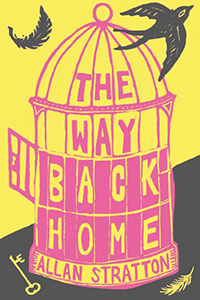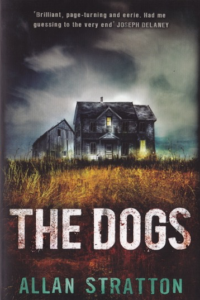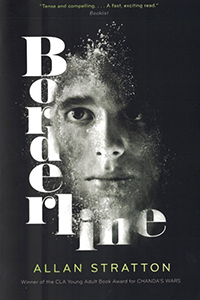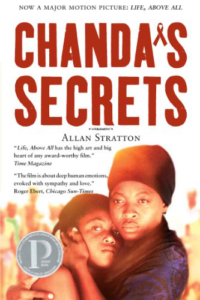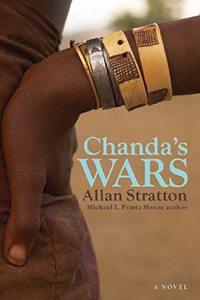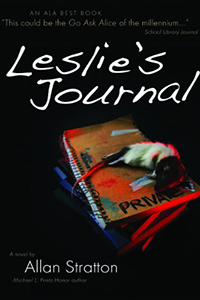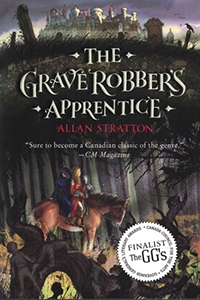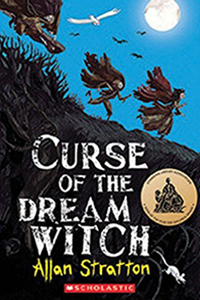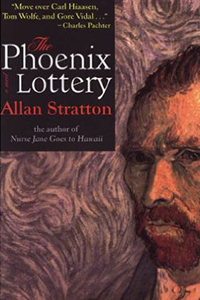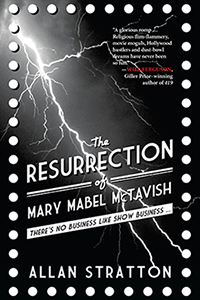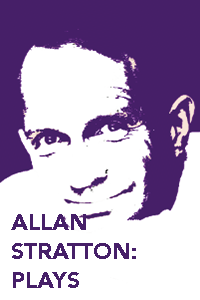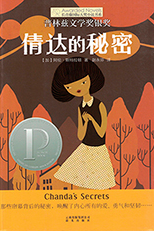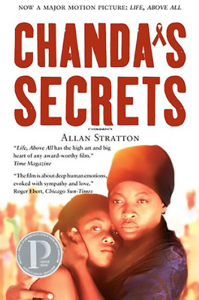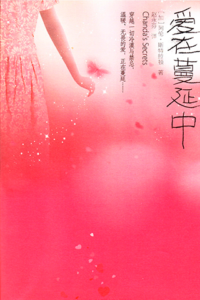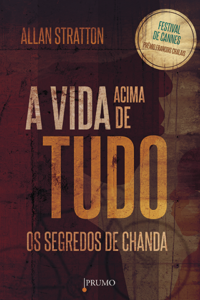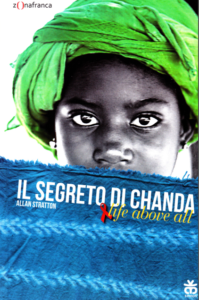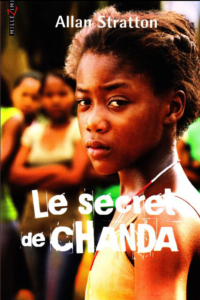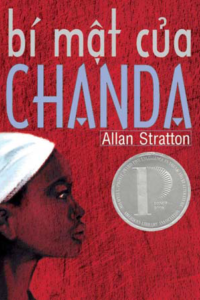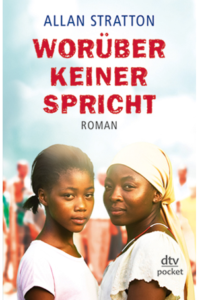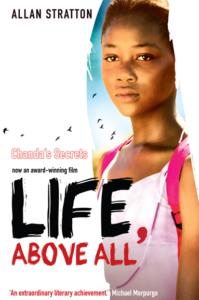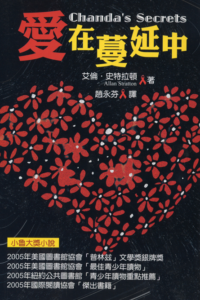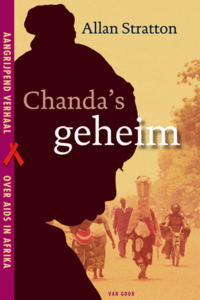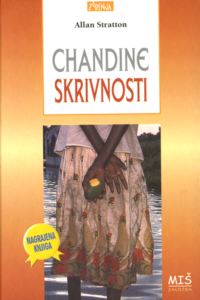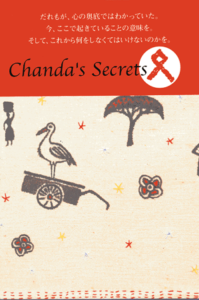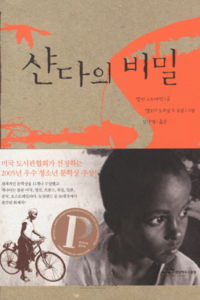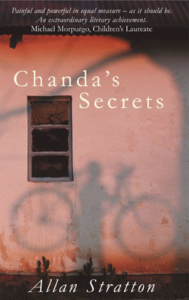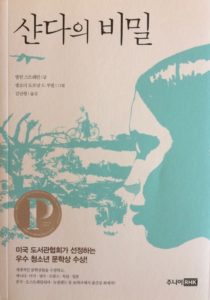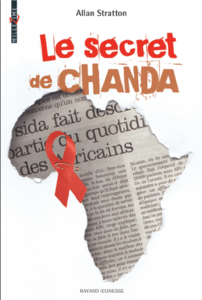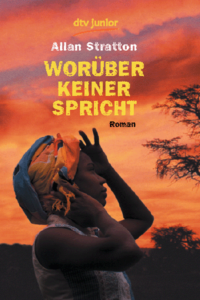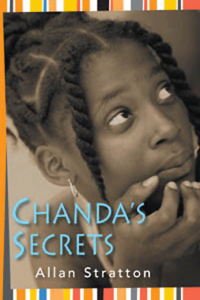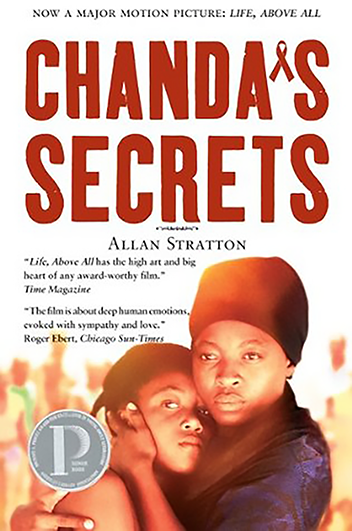
“Absorbing, touching and staggering.”
— The Associated Press
Booklist, Editor’s Choice, Best of 2004
“Painful and powerful in equal measure – as it should be. An extraordinary literary achievement.”
– Michael Morpurgo, Children’s Laureate (UK)
International bestseller
CHANDA’S SECRETS
A suspense-filled story about the enduring strength of loyalty, the profound impact of loss, and a fearlessness that is powered by the heart.
Chanda’s mother is not herself, her younger sister is acting out, and her best friend needs help. A powerful story set amid the African HIV/AIDS pandemic.
> BUY A BOOK | From your local store or AMAZON.CA, BARNES & NOBLE or INDIGO.CA
> SEE VIDEOS BELOW | MOVIE TRAILER, BOOK TRAILER, INTERVIEW
“This book is outstanding. While it deals with Aids in a way that will grip and inspire its audience – which is the author’s aim – Stratton’s talent is such that this is first and foremost a story truly written about adolescence. So, for example, when Chanda is sitting in the undertaker’s parlour attempting to negotiate an affordable funeral for her baby sister, she is, during the painful scene, every moment her age – executing the adult actions required of her, while thinking in the back of her mind, ‘God please forgive me for getting fed up with her last night…please let this not be my fault.’ … Stratton, a Canadian playwright, infuses his writing with knowledge of the African terrain, unfalteringly told in the spare, clear voice of his sixteen-year-old narrator, like a clarion call across the oceans to all the others her same age.”
— The Guardian, U.K.
“Painful and powerful in equal measure — as it should be. An extraordinary literary achievement.”
— Michael Morpurgo, Children’s Laureate (Great Britain)
“Canadian author Allan Stratton got to know the tragic impact of the AIDS pandemic during his time in southern Africa. With this book, he pays tribute to the heroes who break the silence… The novel is absorbing, touching and staggering.”
— Associated Press
“Allan Stratton’s unforgettable Chanda’s Secrets grips from the moment 16-year-old Chanda arrives at Bateman’s Eternal Light funeral Services to pick a cheap casket for her infant step-sibling… Chanda’s Secrets doesn’t patronize by pulling punches. As Stratton’s heroine sees that no miracle of foreign science is going to save her mother, she remains brave — but not unconvincingly so. We leave her with ‘dreams, dreams, dreams’ of more AIDS centres and more openness. ‘Dying is awful,’ she says. ‘But even worse is dying alone in fear and shame with a lie.'”
— The Daily Telegraph, U.K.
“Chanda’s Secrets is a novel with the lilt of Africa in its language and the urgency of adolescent struggle in every paragraph. When AIDS isn’t just a faraway acronym, but a sinister, invisible poison that threaten to steal your family, creep into your night,mares, break your heart and darken your future, how do you learn to grow up with love and courage? that’s one of Chanda’s Secrets. This powerful story hits home with its harsh truths, its pain and its hard-won hopefulness. No-one can read Chanda’s Secrets and remain untouched by the young people who are caught in the AIDS pandemic and still battling to make sense of their lives.”
— Stephen Lewis, U.N. envoy on HIV/AIDS in Africa
“The statistics of the millions infected with HIV/AIDS in southern Africa find a human face in this gripping story… Far from case history, Chanda’s immediate, first-person, present-tense narrative is neither sentimental nor graphic as it brings close the personal struggle with all its pain and loss, shame and guilt… Stratton creates an authentic sense of the community in town and in the bush, including the poverty, overburdened hospitals, struggling schools, and packed cemeteries.”
— Booklist (starred review), Booklist “Editor’s Choice, Best of 2004” list
“Powerful… The strong, respectful writing makes this crucial and broadly relevant story unfailingly human.”
— Kirkus Reviews
“A powerful novel that inspires hope.”
— The Age, Australia
“Finely nuanced, beautifully articulated.”
— The Globe and Mail
“Allan Stratton paints a devastatingly poignant portrait of a sub-Saharan teen’s world torn apart by AIDS… A particularly wrenching reading experience… Stratton has eloquently given a voice to the voiceless.”
— Quill and Quire
“This is a searing book on an important subject… Stratton neither overplays nor underplays the tragedy or the hope here, and there is not a maudlin moment in the novel, just genuine grief and understanding as the epidemic assumes some of its many human faces.”
— The Bulletin (Center for Children’s Books, U.S.A.)
“Smart and determined, Chanda is a character whom readers care for and believe in, in spite of her almost impossible situation. The details of sub-Saharan African life are convincing and smoothly woven into this moving story of poverty and courage.”
— School Library Journal (starred review)
“Immensely readable… It inspires compassion — perhaps even activism — by putting a precise, human face on sorrow.”
— The Toronto Star
“Stratton brings the despair, overwhelming poverty and the impact of AIDS/HIV to life while at the same time depicting the strength of human character when faced with adversity. The audience can see and feel the power of this terrible disease on the physical body and are moved to look beyond mere statistics. They are also inspired to be enlivened by the triumph of the human spirit. Courage, honesty and commitment to oneself are qualities that are fostered in this fantastic text”
— Resource Links
“A breathtaking novel…Its spirited young heroine, Chanda, who dreams of a career and a better future, despite the secrets she must keep, is like any teenager in many ways. Her fearless fight to rescue her friend and stand up for her beliefs is a dramatic portrait of loyalty and loss, hope and courage, that will touch readers of any age.”
— The London Free Press
“In this moving story, Chanda must first admit a problem exists and then deal with it through her own resources, making one small break in the cycle of secrecy.”
— Horn Book Guide
“In this heartfelt, powerful novel, author Allan Stratton depicts the emotional and physical ravages of AIDS in sub-SaharanAfrica. Stratton focuses his story on the strong-willed Chanda, whose courage allows her to face an unimaginable series of losses. This is a tough book to read, but one that brings home to readers the human rsult of the AIDS epidemic inAfrica.”
— Pittsburgh Post Gazette
“Not often does a reviewer admit to crying after reading a book, but this one left me in tears… It is a story of ordinary heroism and heroic compromise as chanda finds a way to exist in the almost impossible social and economic situation of her small African town. Highly recommended.”
— Reading Time, Australia (starred review)
“Confronting in its raw humanity… You can’t be untouched by Chanda’s fear, courage and determination — and the fact stories like hers are true, thousands of times over.”
— Illawarra Mercury, Australia
“‘Chanda’s Secrets’ by Allan Stratton is one of those novels that grab attention by its use of clear, direct language… Stratton shows the pain of all those affected by HIV, as well as the enormous strength of individuals. A must-read!”
— Berliner Zeitung
“Information on political issues is indispensable, but stories focusing on real people and their fates have a more lasting impact. This is especially true when they glow with the power and strength of Chanda’s story. The novel’s intelligence and energy both touch and encourage.”
— Süddeutsche Zeitung
“Free from social kitsch, the novel manages to address bitter issues while providing amusing descriptions of everyday life. The little quarrels at home between Chanda and her younger brother and sister, Soly and Iris, form islands of normalcy in the midst of family disaster, and a delicate contrast to the violence and threats present in the district.”
— Frankfurter Allgemeine Zeitung (FAZ)
“Chanda’s story, full of pain and strength, is authentic, and shows us that as dangerous as the virus, are the taboos surrounding it.”
— Rheinischer Merkur
“A book of great hope that features one of the most inspiring heroines to be found in teen literature today.”
— Holly Koelling, member of the 2005 Michael L. Printz Awards, writing in Women’s Day
Canada, U.S.A.: Annick Press, April 2004 (dist.: Firefly)
Australia, New Zealand: Allen & Unwin, August 2004
U.K., Ireland: The Chicken House, May 2005
Germany: Deutscher Taschenbuch Verlag (dtv jr.), 2005.
Japan: Asunaro Sobo, Fall, 2005.
France, the African francophonie: Bayard Jeunesse, fall 2005.
India: The Chicken House, May 2005 (dist.: Scholastic)
South Africa: The Chicken House, 2005 (dist.: Penguin)
Taiwan: Hsiao Lu Publishing Co., 2006
Korea: Random House Joong Ang, Summer 2005
Portugal: optioned by Sopa de Letras
Slovenia: ZALOZBA MIŠ, (MISH – Janez Miš), 2006
The Netherlands (World Dutch rights): Van Goor, 2007
Vietnam: Thuong Hyyen Books
Italy: Sinnos, 2011
Brazil: Editora Prumo, 2011
China: Beijing Yutian Hanfeng Book Co, 2011
Zimbabwe, Botswana, Lesotho, Swaziland: Pearson/Longman, 2011
2005 Michael L. Printz Honor Book for Excellence in Young Adult Literature, awarded by the American Library Association
Children’s Africana Book Award, 2005, Best Book for the Older Reader, awarded by the African Studies Association (U.S.A.)
American Library Association, Best Books for Young Adults, 2005 (unanimous vote)
ForeWord Magazine: Book of the Year, 2005
New York Public Library: Books for the Teen Age, starred citation, 2005
Silver Stones Honor Book, 2005
Booklist, Editor’s Choice, 2005
International Readers Association, Notable Book, 2005
International Readers Association: Notable Book for a Global Society, 2005
American Library Association, Popular Paperbacks for Young Adults, 2005
Canadian Library Association: 2005 Young Adult Canadian Book Award (finalist)
Snow Willow Award, 2006
White Pines Honour Book Award, 2005
Resource Links, “The Year’s Best, 2005”
Idependant Publisher Book Award (U.S.A.), “The IPPY Award”, 2005: Best Juvenile and YA Fiction
Our Choice 2005, Starred Selection, Canadian Children’s Book Centre
Top 10 Black History Books for Youth, 2005; American Library Association-Booklist, U.S.A.
The Children’s Literature Choice List, 2005; Children’s Literature, U.S.A.
Children’s Book Award Notable Book 2005, U.S.A.
Leicester Book of the Year Award for Teenage Fiction 2005, (Long List), U.K.
Evergreen Young Adult Book Award (finalist, 2007, U.S.A.)
Stellar Award (finalist, British Colombia student choice)
Buch des Monat February 2006: Jubu-Crew Gottingen (Germany)
Empfehlungsliste zum Katholischen Kinder- und Jugendbuchpreis 2006 (Catholic Children and Youth Book Prize, 2006. Shortlist, Germany)
Prixe de Sorcieres (finalist, France)
Prix Plaisir de Lire, 2008, Lyons, France
Black-Eyed Susan Book Award (nominee)
The idea of writing Chanda’s Secrets started with a conversation I had with my publisher Rick Wilks of Annick Press and Barbara Emmanuel, a senior policy adviser at Toronto Public Health in 2002.
I had lived through the AIDS pandemic in the 1980s, buried many friends, been a caregiver to dying friends, and knew many who had been beaten and thrown out of their families — whose families wouldn’t even attend their funerals. I also knew firsthand the effects of being part of a community stigmatized by HIV/AIDS, and the fear and shame of not knowing if I myself was infected, at a time when there were no medicines and no one told friends and family except, maybe, when they were dying.
In 2002, much had been written about HIV/AIDS in North America, but the subSaharan pandemic was ignored by the world: it was as if lives in Africa didn’t matter. I wanted to put a human face to the pandemic, because characters can enter hearts in a way news clips never can. But I also wanted to make sure that I understood the differences, as well as similarities, in the way HIV/AIDS was affecting lives abroad, and that I had the approval, support and vetting from African HIV/AIDS patients and health care workers to write the story.
I went to Francistown, Botswana, a sister city to Toronto, While there, I was in constant contact with Patricia and Tebogoc Bakwinya of The Tshireletso Shining Stars AIDS Day-Care Centre, and Solomon Kamwendo of Ghetto Artists. I also met with Rodgers Bande of COCEPWA (The Coping Centre for Persons with HIV/AIDS), Angelina Magaga of The Light and Courage Centre, members of PACT (Peer Approach to Counselling by Teens), Professor Osei-Hwedie of The University of Botswana, dozens of families living with HIV/AIDS in Monarch township, and herbal doctors, spirit doctors and clinic workers in the villages and cattle posts outside Francistown.
Every setting in Chanda’s Secrets is based on a setting I witnessed firsthand. I fictionalized the country because I didn’t want to pretend I was portraying the political and social nuances of a specific country; rather the focus was on personal family dynamics. The novel was vetted for accuracy by African friends in the field in several countries and published with their full support. South African producers made it into the film Life, Above All which the South African government chose for the country’s Oscar nominee for best foreign film; and the African Studies Association awarded it the Children’s Africana Book Award of 2005. Their trust, vetting and support for this book has meant the world to me.
But the effect on the lives of affected children has meant more than anything. A teacher emailed me from a small village that one of her students was a fourteen-year-old whose parents had died of AIDS: because of stigma, he had pretended the cause was tuberculosis and pneumonia. He took the book from her library and returned days later saying, “Ma’am, I was lying on my bed reading the book and the sun was shining in the window and I suddenly realized I was crying. Ma’am I haven’t cried in two years.” The teacher reported that her student began reading the novel aloud to his friends who had lost parents to AIDS, but because of shame and stigma had been unable to properly grieve their parents by speaking about how they had died. However, they were able to talk about their loss through by talking about the experiences of Chanda. For them, the book was grief therapy. I’d written the book to open eyes in the West, but its embrace by those most directly affected was, and remains, humbling.
— Allan
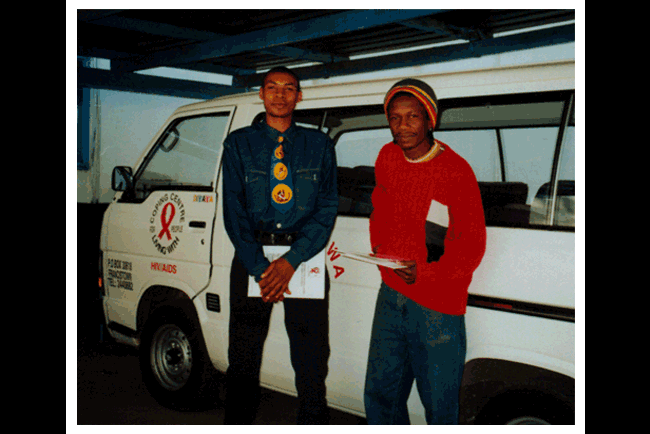
Rogers Bande (left) Francistown Coordinator, COCEPWA (Coping Centre for Persons With AIDS); Solomon Kamwendo (right), Artistic Director, Ghetto Artists. E-mail COCEPWA at: cocepwa@info.bw
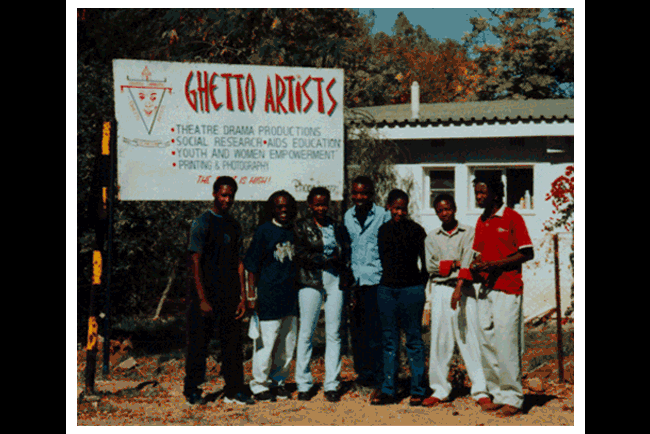
Solomon Kamwendo (artistic director) and his Ghetto Theatre Artists. (Ghetto Artists is a theatre company devoted to AIDS education; Ghetto is the local nickname for Francistown)
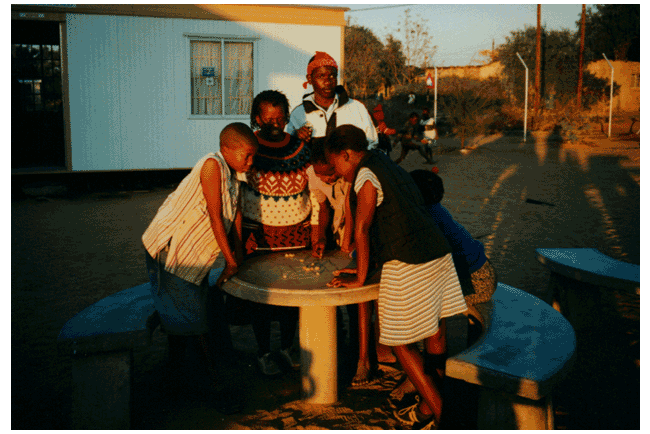
Patricia Bakwinya, founder and co-ordinator of Tshireletso Shining Stars AIDS Awareness Group, on site with some of her Tshireletso Shining Stars.
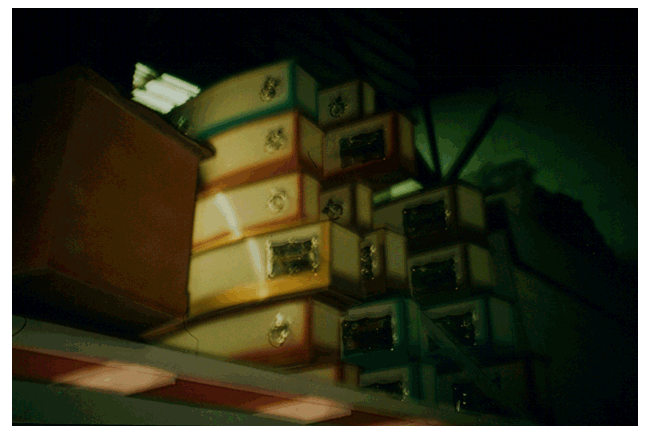
Caskets at a Francistown mortuary.
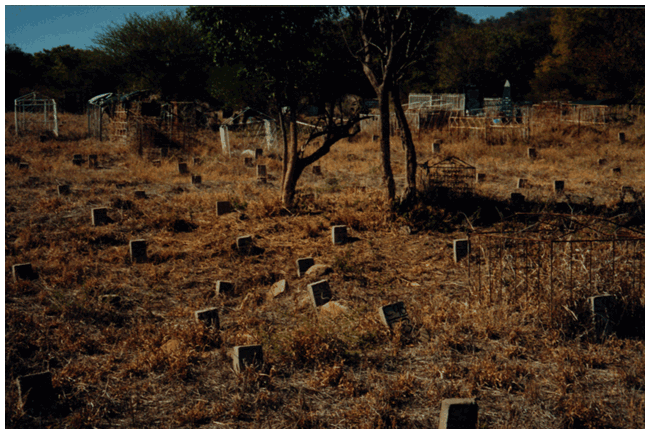
Graves at Monarch Phase 5 Cemetery.
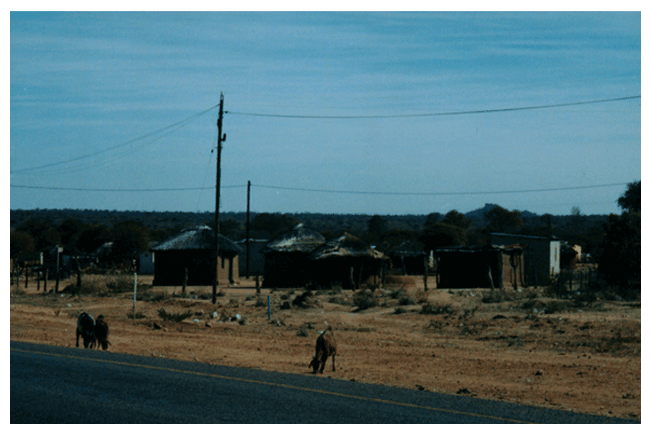
Shashe, a village on the road outside Francistown.
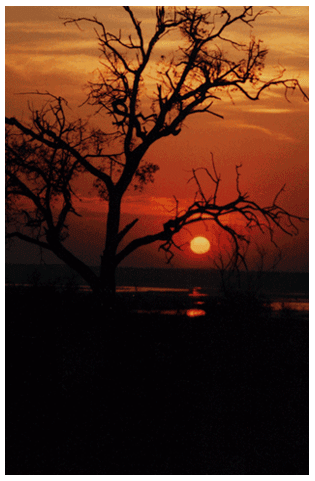
All photos courtesy of Allan Stratton.

